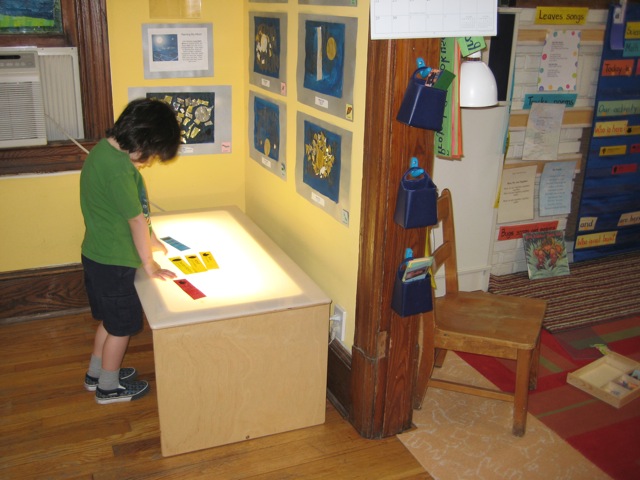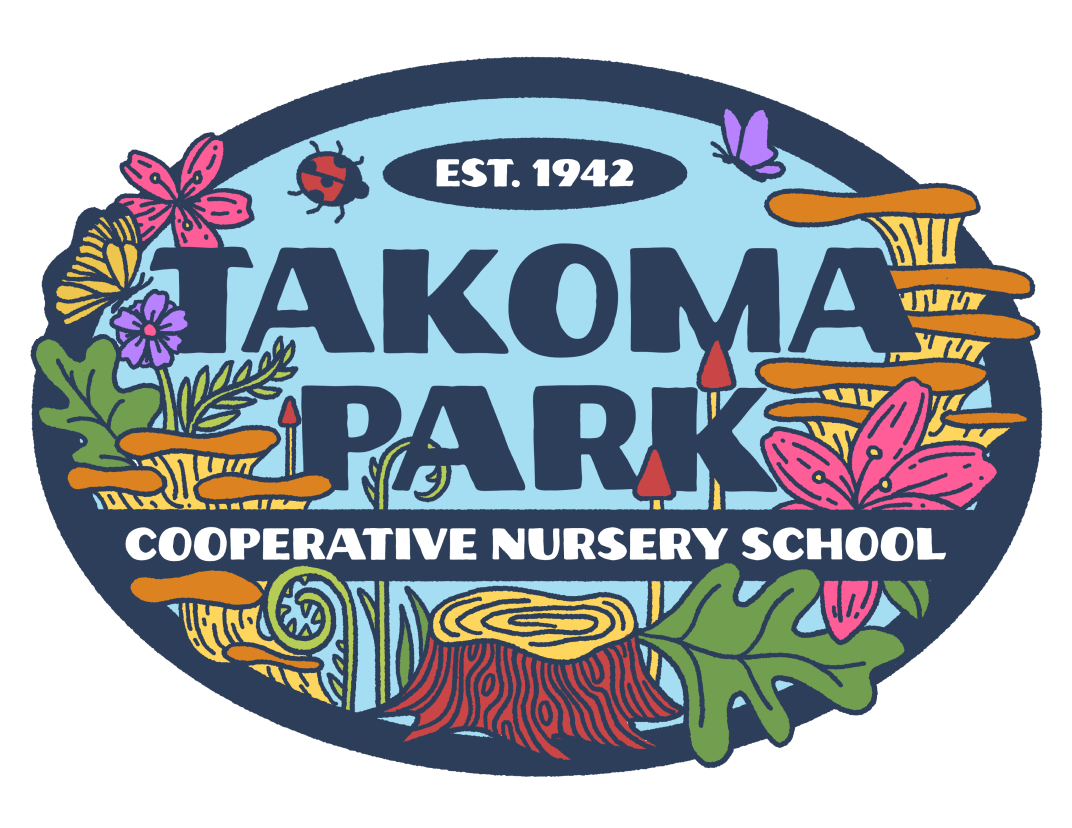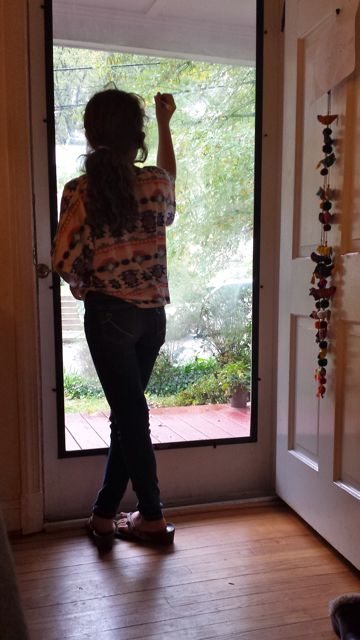Things we say . . .
I have office hours during our twos class, but I mostly like to watch the two year olds play. I hang out watching them for as long as I can until Andrea, their teacher, reminds me that I have paperwork. A few weeks ago I watched a two-year old pick up her symbol from the light table and walk with it to the daily plan. Two year olds are all purpose-driven and focused on the task at hand. She is thinking I must complete this task, but wait...there's a train track. She starts to turn away from the pocket chart that we use for our check in, the laminated symbol still clutched in her hand. Andrea reminds her, "Put your symbol in the pocket first."

The POCKET?!? I have worked with Andrea for years and have used that pocket chart for this very thing even longer and I NEVER say "pocket." I always say, "Put your symbol in the sentence," because my focus is on the end game...referring to sentence structure and answering the question, "Who is here?" Pocket makes so much sense! What does sentence even mean in this case? The children eventually get it, sure, but to be introduced to the experience using the word "pocket" because that's what it is, gets to the heart of the matter. Young children are usually quite thrilled to find out about their own pockets and to have a pocket to place their symbol in each day is just the ticket! If I changed what I said to "in the sentence pocket" it would make sense that it would change the children's experience.
This is a gift, having an opportunity to listen to other teachers, because you get to hear yourself. Yesterday, I played school with my almost 9-year old niece. She was the teacher and she is an expert teacher. She uses the glass storm door of their house as a Promethean board, she has a desk she made from a side table, a stack of papers to grade on top of it, and a cup filled, filled I tell you, with all sorts of writing tools. She has pinned up charts to their curtains which outline the status of students in her class. When I was attending her school I had to walk in a line with the baby and her younger sister, "use an inside voice" during lunch, and complete a bunch of "morning work" which included math and the writing prompt, "If you could bring a pet to school, what would it be and why?"
When we first "arrived" at her school, she told us, "Get what you need to sit on the rug." I asked her what she meant by that and she said, "You might need a special seat or something to hold? You have to get that before you sit down." I was so excited to hear her say this, she obviously has some good "co-workers" and mentors! She had lots of good encouragement-kind of statements, "Refresh your memory! Do some math!" but there was also that thing "You can thank your little friend for losing your "A", no movies for the class today!"
Too bad! I wish the baby hadn't started chewing up all the teacher's papers. We might have gotten a movie during class.
"I can't hear you unless you raise your hand," she declared. She turned back to her Promethean board, but stopped and turning back, she added hesitantly, "If you raise your hand, I can hear your hand go up. Then I will call on you."
We say so much on any given day. We are holding multiple conversations on so many levels with so many different people, both adults and children. Of course there are going to be things that we say that make no sense. Sometimes the children will signal to us that they don't understand, other times they will simply muddle through, but there will be many instances when our words simply sing. Sing, I tell you! The words are like magic and are perfect for the time and place and the people receiving them!

